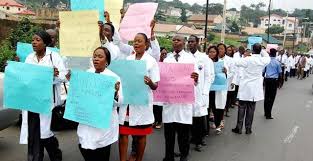
GDP growth slows to 0.1% as unemployment rises, taxes weigh on business confidence….
Britain’s economy cooled further in the third quarter of 2025, according to official data released on Thursday, a setback for the Labour government as it prepares to unveil its first annual budget later this month.
Figures from the Office for National Statistics (ONS) showed that the UK’s Gross Domestic Product (GDP) expanded by 0.1 per cent between July and September, down from 0.3 per cent growth recorded in the previous quarter. The figure also missed analysts’ expectations of 0.2 per cent growth.
The weaker-than-expected result follows data earlier this week showing that the unemployment rate rose to 5.0 per cent in the same period, adding to the economic challenges confronting Prime Minister Keir Starmer’s administration since taking office in July 2024 after 14 years of Conservative rule.
Analysts attribute much of the slowdown to higher business taxes introduced by Finance Minister Rachel Reeves in her first budget last year, a policy that has faced criticism for dampening investment and productivity. Reeves has since suggested that further tax increases, particularly on higher salaries, may be necessary to reduce public debt and strengthen funding for essential services.
“There’s more to do to build an economy that works for working people,” Reeves said in response to the latest ONS figures. “At my budget later this month, I will make the fair decisions to build a strong economy.”
Economists noted that the latest reading represents a sharp slowdown from the 0.7 per cent growth recorded in the first quarter of the year.
Ruth Gregory, Deputy Chief UK Economist at Capital Economics, said the economy is “struggling to gain decent momentum in the face of higher taxes and weak exports,” warning that with more tax rises expected, there is little sign of growth picking up in the short term.
The ONS data also showed that the economy contracted by 0.1 per cent in September, largely due to a cyberattack on carmaker Jaguar Land Rover that disrupted production. The manufacturing setback was compounded by a downturn in the pharmaceutical industry, while growth in the construction and services sectors also weakened.
“There was a particularly marked fall in car production in September, reflecting the impact of a cyber incident, as well as a decline in the often-erratic pharmaceutical industry,” said Liz McKeown, the ONS’s Director of Economic Statistics.
Despite the sluggish growth, the Bank of England maintained its key interest rate at its November meeting, noting that inflation remains well above its 2 per cent target.
However, Rob Wood, Chief UK Economist at Pantheon Macroeconomics, suggested that the combination of weak growth and soft labour data “all but seals a December rate cut,” as the central bank seeks to support economic recovery.



